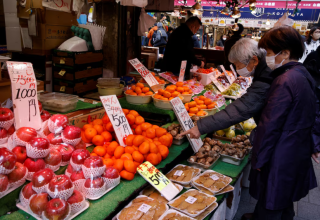
Last updated on May 11th, 2021 at 09:06 am
A proposal for a stabiliser fund to support the battered stock market is scheduled to be vetted by Prime Minister Prayut Chan-o-cha on Monday.
According to Deputy Prime Minister Somkid Jatusripitak, who discussed the issue yesterday with the Finance Ministry, the Stock Exchange of Thailand (SET), the Securities and Exchange Commission (SEC) and the Bank of Thailand, all parties agreed with the proposal to establish the stabiliser fund. The fund will be sourced from government agencies and the private sector. The government will not allocate fiscal budget to support the fund, Mr Somkid said. “The new fund should be sizable enough to accommodate the domestic equity market, which is worth around 16-17 trillion baht, almost equivalent to the country’s GDP, which was 17.36 trillion baht in 2019,” he said. “We hope the stabiliser fund will help support and prevent the Thai stock market from collapse amid escalating worries over the coronavirus outbreak.”
Unemployment is projected to surge in April because of a sharp decrease in foreign visitors, tepid domestic tourism and widespread drought. The central budget will be allocated to financially support training programmes both for existing workers and new graduates. According to the latest report by the National Economic and Social Development Council, the coronavirus pandemic has directly affected the tourism sector of Thailand.
If the outbreak cannot be controlled, employment will suffer in three main service sectors, namely wholesale/retail, transport and hotels/restaurants, and there may be an impact on employment in the manufacturing sector, the think tank warned. On Thursday, Thanavath Phonvichai, president of the University of the Thai Chamber of Commerce, said the pandemic alone would cause estimated damage of 749 billion baht, including 402 billion baht in tourism revenue, 117 billion baht from lower private consumption, 93.9 billion baht from decreasing private investment and 136 billion baht from lower exports.
The university expects the outbreak to impact 1.67 million workers, with 629,064 in the restaurant and hotel sector, 283,472 in wholesale and retail, 180,391 in the service sector, 42,515 in transport and communication and 25,671 in food production.
























